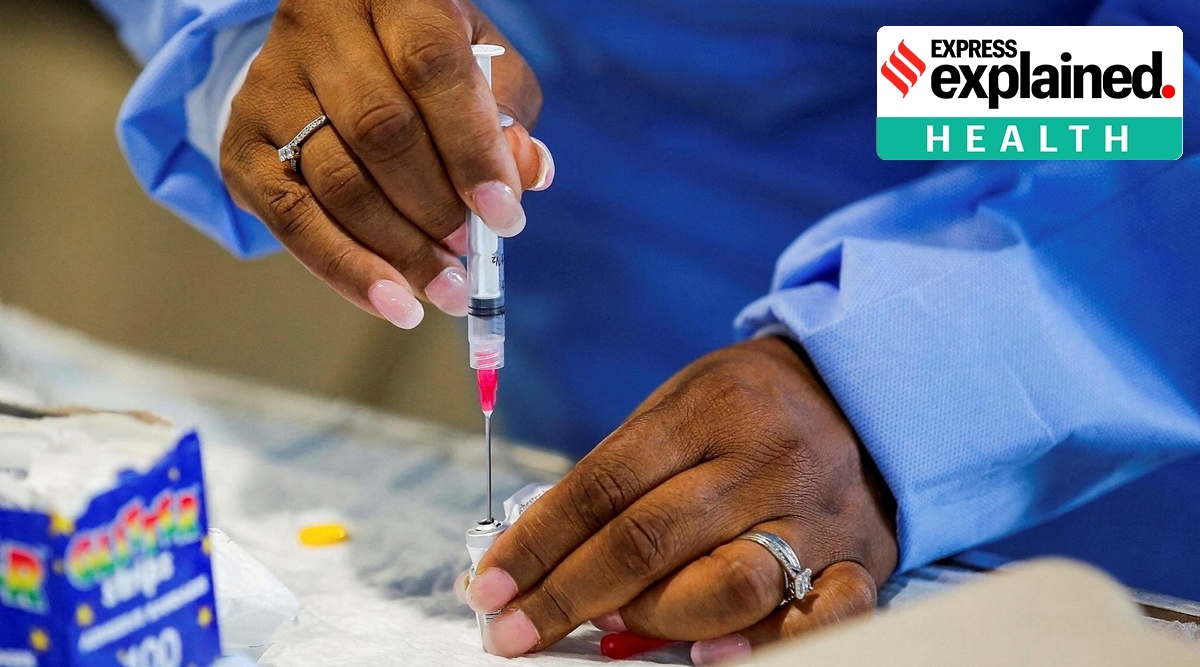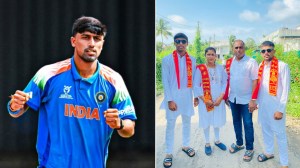A 22-year-old man from Kerala took a flight back home from the United Arab Emirates (UAE) after testing positive for monkeypox. After reaching Kerala, he did not report to any health facility for five days and even played football at a local ground. He died on Saturday (July 30) with encephalitis (swelling of the brain). The Centre has reached out to the UAE authorities to determine how he was able to board the flight despite testing positive for the viral infection.
In a case such as this, who is at risk of contracting the disease and how can it be prevented?

Can travellers catch the virus if they are on a plane with an infected person?
It is unlikely. This is because of the way the monkeypox infection is transmitted.
The infection spreads mainly through skin-to-skin, mouth-to-mouth, or sexual contact with someone who has the monkeypox rashes. People can also contract the infection from direct contact with the lesions or the fluid in it, or indirect contact with contaminated material such as linens.
In case of the 22-year-old from Kerala, the state Health Minister said that he had “no symptoms of monkeypox.”
The infection does not spread among people who are merely gathered together in a public place.
Story continues below this ad
While it can in theory be transmitted through large respiratory droplets, that sort of transmission would require prolonged and close contact with the infected person. And if you are wearing a mask as part of Covid-19-appropriate behaviour, you will be protected against monkeypox transmission.
In the current global outbreak, sexual contact appears to be the most efficient way of transmission, with most cases occurring in men who have sex with men (MSM).
“We’re seeing cases that are largely focused on men. And when we look at those cases, we’re noticing that actually its men who have sex with men… There have been some cases reported in women and children, but these have been very limited,” said Andy Seale, an advisor on sexually transmitted infections at the World Health Organisation (WHO) in a video put out by the organisation.
How can we protect ourselves?
Story continues below this ad
Dr R Gangakhedkar, former Head of the Department of Epidemiology and Communicable Diseases at the Indian Council of Medical Research (ICMR), told The Indian Express in an interview that sexual activities should be avoided with partners who are unknown or not regular.
As a safety measure, condoms must be used during such sexual activity. However, the United States Centers for Disease Control and Prevention (CDC) cautions that while “condoms may help; however, condoms alone are likely not enough to prevent monkeypox”. Kissing, the CDC advises, should be avoided, and skin-to-skin contact should be reduced to the extent possible.
In case a close contact has the infection, use appropriate personal protective measures while caring for them, avoid contact with infected material such as linens, and wash hands regularly. The patient must remain in isolation.
Those who get pox-like rashes should consult their doctor.
Who needs to go to a doctor?
Story continues below this ad
Anyone with unexplained pox-like rashes, coupled with fever, headache, body ache, profound weakness, or swollen lymph nodes must seek care. If there is a history of international travel in the last 21 days, it is more likely to be monkeypox.
India has reported six cases so far — all the four cases from Kerala have a history of travel to UAE whereas the two cases from Delhi do not.
Is there a need for vaccination?
No — not at this moment at least.
Dr Gangakhedkar told The Indian Express: “There is a very low risk of death — less than 1%. And this estimate is based on data from Africa (where the vast majority of deaths have occurred so far). Statistically, the case fatality ratio is very, very low.”
Story continues below this ad
He added: “The disease is not very severe, so public health systems are unlikely to be over-burdened (like they were with Covid). Data from the Western countries shows that about 13% of the cases are hospitalised. If you look at the breakup of the hospitalisations, many come in for pain management. This number is likely to be lower in India — varying among different socio-economic groups with different health-seeking behaviours. Most patients can be effectively isolated at home.”







































